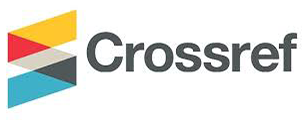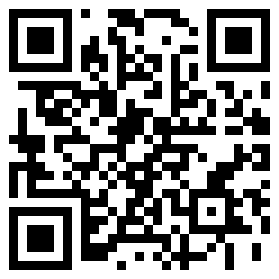Persepsi mahasiswa terhadap skenario pembelajaran problem based learning
Abstract
Model pembelajaran problem based learning merupakan salah satu model pembelajaran yang digunakan dalam pembelajaran abad 21. Keterlaksanaan proses pembelajaran dapat dilihat dari kesiapan guru dan peserta didik. Kesiapan peserta didik dapat dilihat dari persepsinya terhadap model pembelajaran tersebut. Artikel ini mengkaji tentang persepsi mahasiswa terhadap skenario pembelajaran menggunakan model pembelajaran problem based learning. Penelitian ini menggunakan metode deskriptif kuantitatif. Persepsi mahasiswa dilihat dari tiga aspek yaitu kesiapan, minat, dan profil pembelajaran. Persepsi mahasiswa tentang kepercayaan diri dan partisipasi aktif mahasiswa bukan dipengaruhi oleh model pembelajaran yang digunakan tetapi lebih dipengaruhi oleh materi yang dipelajari. Persepsi minat mahasiswa terhadap pelaksanaan PBL cukup baik dan persepsi mahasiswa terhadap profil pembelajaran PBL sangat baik. Persepsi mahasiswa terhadap profil pembelajaran sudah sangat baik, hanya saja pada tahapan orientasi masalah dan evaluasi terhadap proses penyelesaian masalah perlu ditingkatkan karena tahapan ini merupakan salah satu tahapan yang penting dalam model pembelajaran problem based learning.
Problem-based learning model is one of the learning models used in the 21st-century learning process. The implementation of the learning process can be seen from the readiness of the teacher and students. Readiness can be seen from their perceptions of the learning model. This article examines the students' perception of learning scenarios using problem-based learning. This research uses the quantitative descriptive method. Student perceptions showed three aspects: readiness, interest, and learning profile. Student perceptions about self-confidence and participation not only influenced by using the model but also influenced by the content of the material. The perception of student interest in PBL implementation is good and students' perception of the PBL learning profile is very good. Student perceptions of the learning profile have been very good, only at the stage of problem orientation and evaluation of the problem-solving process needs to be improved
Kata kunci: persepsi, skenario pembelajaran, problem based learning
Full Text:
PDFReferences
K. M. Yusof, S. A. H. Syed Hasan, M. Z. Jamaludin, N. F. Harun, Cooperative Problem-based Learning (CPBL): Framework for Integrating Cooperative Learning and Problem-based Learning, Social and Behavioral Sciences, vol. 56, 2012, pp. 223-232. Doi: http://doi.org/10.1016/j.sbspro.2012.09.649.
Y. Zhang, L. Zhou, X. Liu, L. Liu, Y. Wu, Z. Zhao, D. Yi, The Effectiveness of the Problem-Based Learning Teaching Model for Use in Introductory Chinese Undergraduate Medical Courses: A Systematic Review and Meta-Analysis, PLoS ONE, vol.10 no.3, 2015, e0120884. Doi: http://doi.org/10.1371/journal.pone.0120884
E. De Graff & A. Kolmos, Characteristics of Problem-Based Learning. International Journal of Enginering Education, vol. 19, no. 5, 2003, pp 657-662.
A. Gurses, C. Dogar, E. Geyik, Teaching of The Concept of Enthalpy using Problem Based Learning Approach. Procedia-Social and Behavioral Sciences, vol. 197, 2015, pp. 2390-2394. Doi: http://doi.org/10.1016/j.sbspro.2015.07.298.
S. M. M. Loyens, S. H. Jones, J. Mikkers, T. van Gog, Problem-based Learning as A Facilitator of Conceptual Change. Learning and Instruction, vol. 38, 2015, pp. 34-42. Doi: http://dx.doi.org/10.1016/j.learninstruc.2015.03.002.
R. Phungsuk, C. Virijavejakul, T. Ratanaolarn, Development of A Problem-based Learning Model Via A Virtual Learning Environment, Kasetsart Journal of Social Sciences, vol. 38, 2017, pp. 297-306. Doi: http://dx.doi.org/10.1016/j.kjss.2017.01.001
E. H. J. Yew, K. Goh, Problem-Based Learning: An Overview of its Process and Impact on Learning, Health Professions Education, vol. 2, 2016, pp. 75-79. Doi: http://dx.doi.org/10/1016/j.hpe.2016.01.004
P. L. Thomas & R. W. Schwenz, College Physical Chemistry Students’ Conceptions of Equilibrium and Fundamental Thermodynamics, Journal Research in Science Teaching, vol. 35 no. 10, 1998, pp. 1151 – 1160.
C. Coubergs, K. Struyven, G. Vanhournout, N. Engels, Measuring Teachers’ Perceptions about Differentiated Instruction: The DI-Quest Instrument and Model, Studies in Educational Evaluation, vol. 53, 2017, pp. 41-54. Doi: http://dx.doi.org/10.1016/j.stueduc.2017.02.004
DOI: http://dx.doi.org/10.12928/jrkpf.v5i2.10431
Refbacks
- There are currently no refbacks.
Copyright (c) 2018 Jurnal Riset dan Kajian Pendidikan Fisika
Jurnal Riset dan Kajian Pendidikan Fisika | Journal of Research and Physics Education Studies
Kampus 4 Universitas Ahmad Dahlan
Jl. Kolektor Ring Road Selatan, Tamanan, Banguntapan, Bantul, Daerah Istimewa Yogyakarta
Telp. (0274) 563515, ext. 43514; Fax. (0274) 564604, Hp. +62822 3634 7674
Email: jrkpf@pfis.uad.ac.id
e-ISSN: 2355-620X
This work is licensed under a Creative Commons Attribution-NonCommercial 4.0 International License
Best viewed on Mozilla Firefox at screen resolution 1366 x 768 pixels.
View My Stats







